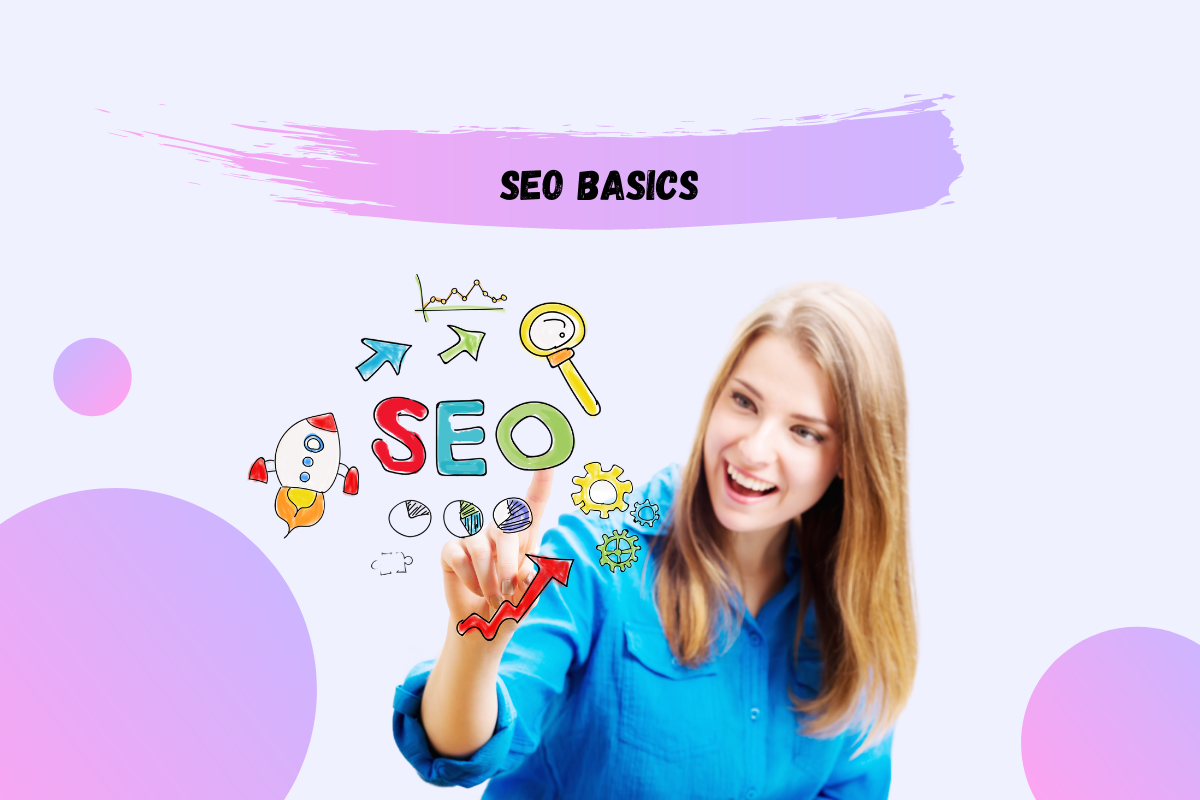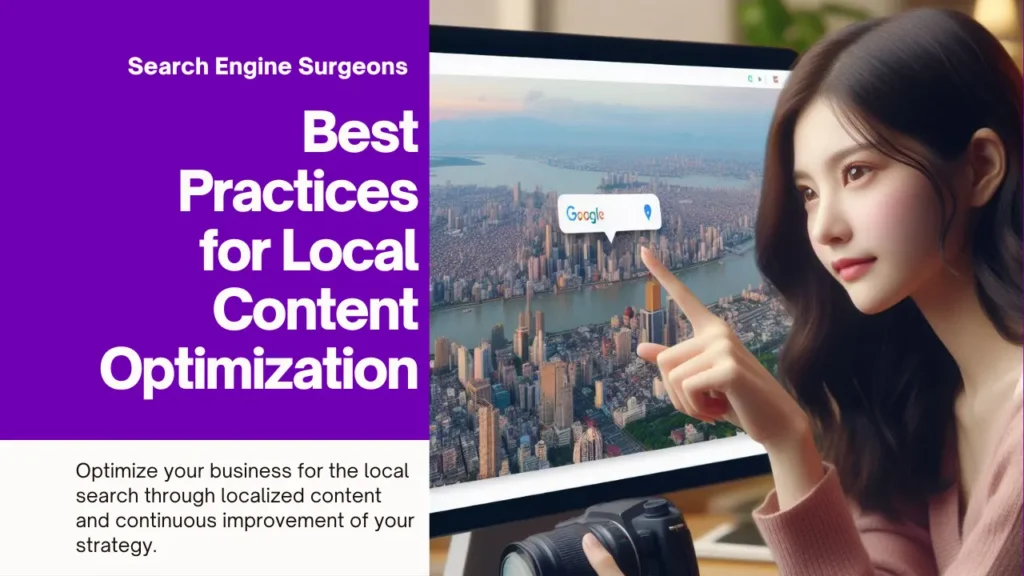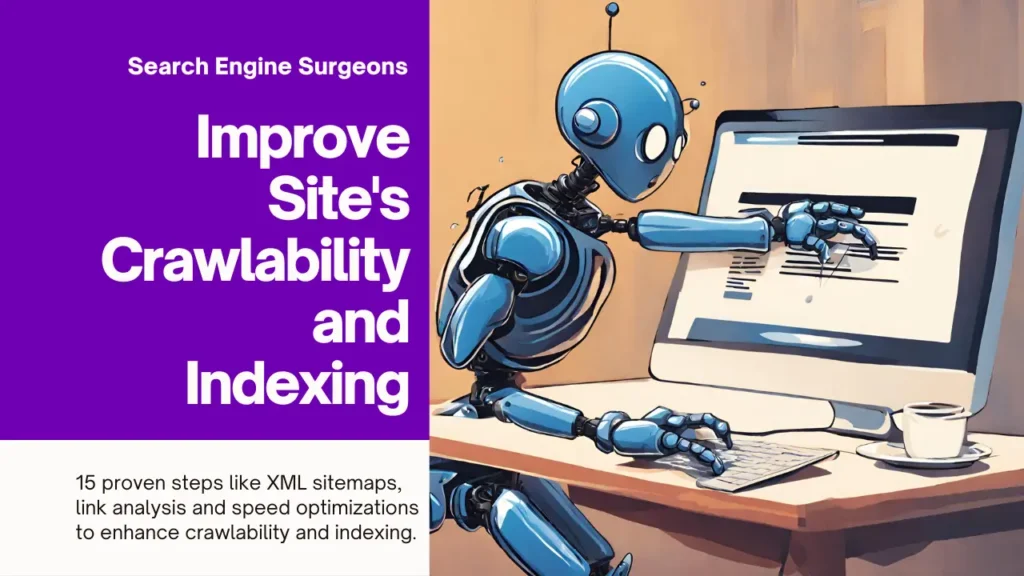In the vast and mysterious realm of the internet, there’s a secret language being spoken—one that can make or break the fortunes of businesses and websites alike. It’s not Klingon or Dothraki, but rather a digital dialect known as SEO, or Search Engine Optimization. If you’re scratching your head and thinking, “SEO, huh? Isn’t that just some techy mumbo-jumbo for geeks in Silicon Valley?” Well, you’re not alone in your befuddlement, but bear with me because this is one secret you’ll want to unravel.
Picture this: You’re planning a trip to a foreign land, and you need to find the best restaurant in town. What’s the first thing you do? You whip out your trusty smartphone and tap those magical words into your search engine: “Best restaurant in [insert destination].” Within milliseconds, a list of culinary wonders appears before your eyes. How does the search engine know which restaurants to show you, and in what order? That’s the sorcery of SEO at work!
But SEO isn’t just about finding the best restaurant or scoring your favorite recipe; it’s about making your mark in the digital universe. In this article, we’ll embark on a journey to demystify SEO and explore why it’s essential for anyone venturing into the vast online landscape. So, fasten your seatbelts, because we’re about to dive headfirst into the exciting world of SEO.
Definition of SEO
SEO, or Search Engine Optimization, is like a magical map that guides people to your online treasure. It’s a set of strategies and techniques that make your website more attractive to search engines, like Google. When done right, it ensures your website shows up at the top of search results, drawing visitors like bees to honey.
Let’s hop into our time machine and travel back to the early days of the internet. SEO was like a Wild West show. People stuffed keywords like “free money” into their websites, hoping to lure visitors. But search engines quickly evolved, and the keyword stuffing party was over.
Search engines, led by Google, grew smarter. They learned to separate the gold from the fool’s gold. Today, they use complex algorithms that analyze not only keywords but also content quality, user experience, and many other factors. The SEO game has become sophisticated.
The Importance of SEO
Now, why should you care about SEO? Well, let’s break it down.
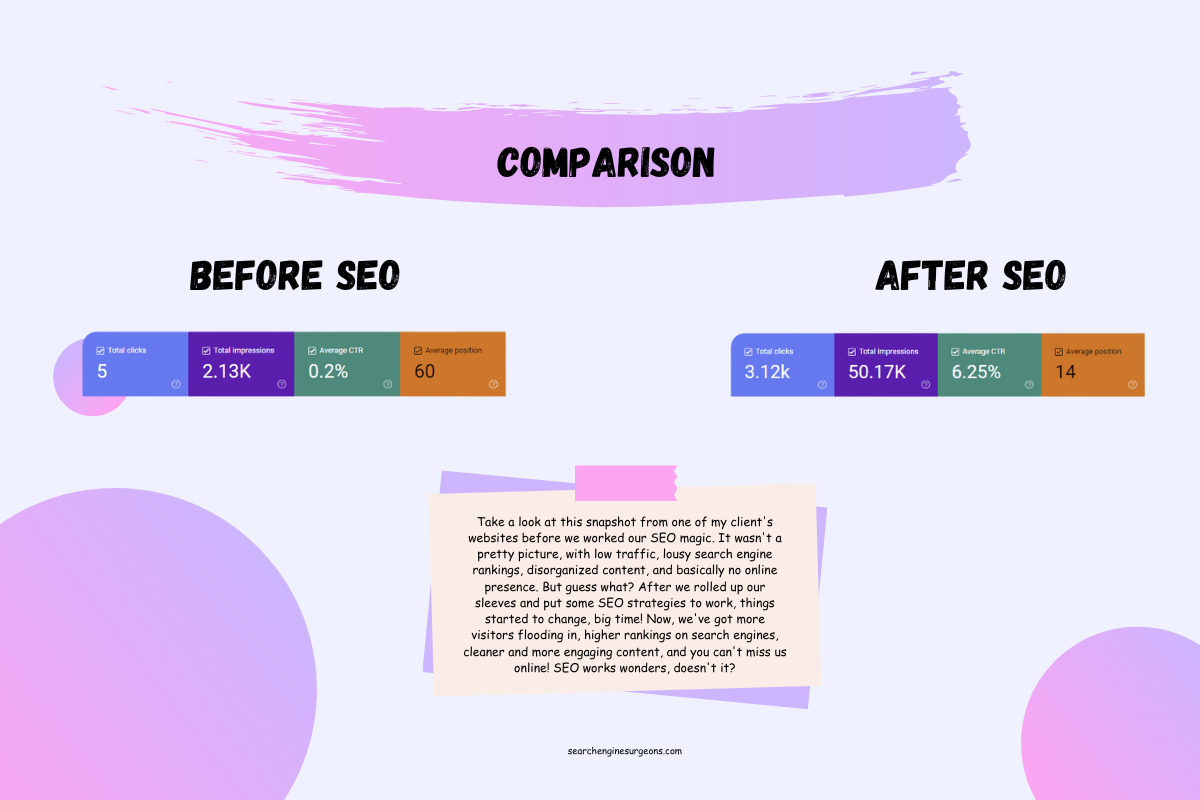
1. Driving organic traffic
Imagine a busy street in the heart of a bustling city. Your website is like a charming boutique on that street. SEO is the signboard that points people in your direction. Organic traffic, the kind that comes from search engines, is the lifeblood of your online presence. It’s free, targeted, and oh-so-valuable.
2. Building credibility and trust
Imagine you’re looking for a reputable restaurant. Would you trust the one hidden in a back alley or the one with a prime location on the main street? Search engines think the same way. When your website ranks high, it signals trustworthiness to users. They’re more likely to click and explore.
3. Improving user experience
Ever visited a website that felt like a labyrinth? You had to navigate through endless pop-ups and confusing menus. Frustrating, right? SEO encourages a clean, user-friendly website. It’s like a well-organized library; visitors can find what they need without getting lost.
4. Enhancing website visibility
Remember, the internet is a crowded marketplace. Billions of websites jostle for attention. SEO helps you stand out in the crowd. It’s your neon sign in Times Square, ensuring your online presence shines bright.
5. Competing effectively in the online market
Think of SEO as your secret weapon in the online battleground. It’s your Excalibur, helping you take on giants in your industry. Even if you’re a small business, with SEO, you can compete and thrive alongside the big players.
In the world of online business, SEO is your trusty steed, guiding you through the twists and turns of the digital landscape. It’s your magical wand, conjuring up the visibility and success your website deserves.
If you don’t want to do it yourself. We are here to help. Let’s chat about your SEO goals.
Key Elements of SEO
Alright, folks, it’s time to dig into the nitty-gritty of SEO, the nuts, and bolts that make your online presence shine. Imagine SEO as your trusty Swiss army knife, equipped with various tools to help you conquer the digital realm. Let’s dive in!
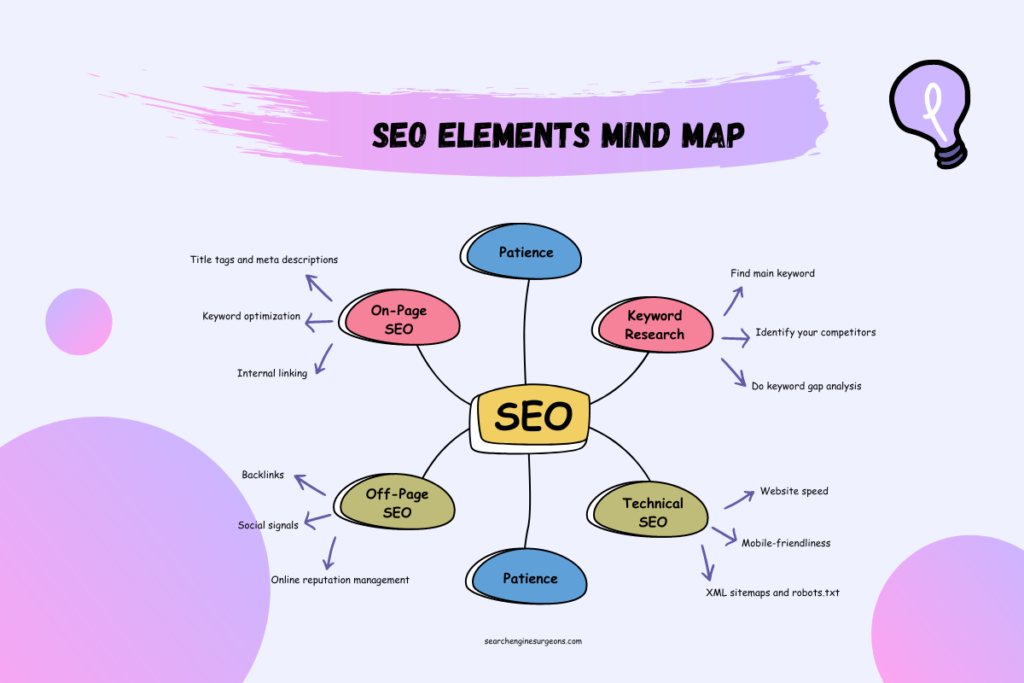
1. On-Page SEO
Think of on-page SEO as the interior design of your website. It’s all about making your digital home cozy and inviting. There are many on-page factors, some of them are:
Title tags and meta descriptions
These are like the welcome mat at your front door. They tell visitors what to expect inside. Craft them carefully, using relevant keywords to entice clicks.
Header tags (H1, H2, H3)
Headers are like the chapters in a book; they structure your content. Use them wisely to guide readers and search engines through your pages.
Keyword optimization
Keywords are the secret sauce of SEO. They’re the words and phrases people type into search engines. Use them strategically, but don’t overdo it. It’s like seasoning your dish—too much, and it ruins the taste.
Quality content
Content is king, my friends. Create informative, engaging, and valuable content that keeps visitors coming back for more. It’s like throwing the best party in town—people won’t stop talking about it!
URL structure
Clean and organized URLs are like clear road signs. They help both users and search engines navigate your website effortlessly.
Internal linking
Internal links are your website’s secret passages. They connect different rooms (pages) and help distribute the SEO juice evenly. Think of them as a treasure map for search engines.
2. Off-Page SEO
Now, let’s venture beyond your website’s borders. Off-page SEO is all about building your reputation across the vast internet landscape. Some types of off-page SEO include:
Backlinks and link building
Backlinks are like personal recommendations from other websites. They tell search engines, “Hey, this site is trustworthy!” Quality over quantity is the name of the game here.
Social signals
Social media isn’t just for cat videos and memes. It’s a platform to showcase your online presence. Engage with your audience and let your brand personality shine through.
Online reputation management
Your online reputation is your digital handshake. Monitor and manage reviews, mentions, and comments to ensure you’re seen in the best light.
3. Technical SEO
Imagine your website as a high-performance sports car. Technical SEO ensures it runs smoothly and efficiently. The checklist of technical SEO include:
Website speed and performance
Nobody likes a slow website. Speed things up, and visitors will stick around longer.
Mobile-friendliness
With more people surfing the web on their phones, a mobile-friendly website is a must. It’s like having a welcoming door for everyone, regardless of their device.
XML sitemaps and robots.txt
These are like the blueprints and security measures for your website. They guide search engines and keep the digital pests at bay.
Schema markup
Schema markup is the language of search engines. It helps them understand your content better, improving your chances of showing up in rich snippets and answer boxes.
4. Local SEO
If you run a brick-and-mortar business, local SEO is your digital storefront. Local SEO include:
Google Business Profile
This is your online business card. Fill it out completely, and Google will reward you with higher visibility in local searches.
NAP consistency
Your Name, Address, and Phone Number should be consistent across all online directories. It’s like having a uniform for your online presence.
Online reviews
Positive reviews are your digital word-of-mouth. Encourage happy customers to leave feedback; it’s like building a loyal fan base.
So there you have it, your SEO toolkit in a nutshell. These elements, when wielded with care and strategy, can transform your online presence from a hidden gem into a dazzling beacon for all to see.
SEO vs. PPC (Pay-Per-Click)
Hey there, digital trailblazer! Imagine you’re in a bustling marketplace, trying to grab the attention of shoppers. SEO and PPC are your marketing strategies, each with its own unique superpower. Let’s unravel the clash of the titans!
Definition and differences between SEO and PPC
SEO, or Search Engine Optimization, is like planting seeds in a lush garden. It’s about growing organic, long-term visibility on search engines. PPC, on the other hand, is like setting up a flashy billboard. It’s about paying for instant visibility through ads.
Advantages and disadvantages of each
Advantages of SEO:
- Long-lasting results: SEO is the slow and steady marathon runner. Once you’ve climbed the rankings, you can enjoy the view for a while.
- Cost-effective: Organic clicks from SEO don’t cost you a dime per click. Cha-ching!
- Credibility boost: People trust organic search results more than ads. It’s like word-of-mouth marketing in the digital world.
Disadvantages of SEO:
Patience required: SEO takes time to see results. It’s not for the impatient or those looking for quick wins.
Ever-changing landscape: Search engine algorithms constantly evolve. You need to keep up with the latest trends.
Advantages of PPC:
- Instant visibility: With PPC, you can be on the first page of search results within hours.
- Control: You decide where, when, and how your ads appear. It’s like being the director of your own marketing movie.
- Data-driven: PPC offers detailed analytics, helping you fine-tune your campaigns for better results.
Disadvantages of PPC:
- Cost: Every click costs money. If you’re not careful, your budget can vanish faster than a magician’s rabbit.
- Ad blindness: Savvy users often ignore ads. It’s like having a salesperson at your door when you’re not in the mood to buy.
When to use SEO, PPC, or a combination of both
Imagine you’re planning a cross-country road trip. You’ve got a reliable car (that’s your SEO strategy) and a turbocharged sports car (that’s PPC). Here’s when to take each for a spin:
Use SEO when: You’re in it for the long haul. SEO is perfect for building a strong, sustainable online presence. If you’re patient and looking for lasting results, this is your go-to.
Use PPC when: You need instant results or have a specific promotion. PPC is like turning on a tap; you can control the flow of traffic. It’s great for short-term boosts.
Use both when: You want the best of both worlds. Combining SEO and PPC is like having both cars for your trip. You can enjoy long-term growth while also revving up traffic when needed.
So, there you have it, the showdown between SEO and PPC. Remember, there’s no one-size-fits-all answer. Your choice depends on your goals, budget, and timeline. Like a savvy marketer, assess your needs and use the right tool at the right time. Now, saddle up, and let’s conquer the digital frontier!
SEO Best Practices
Welcome to the grand SEO academy, where we’ll unveil the secrets to conquering search engine stardom. Think of SEO as a thrilling adventure, and these best practices are your trusty treasure map. Grab your explorer’s hat, and let’s dive in!
White hat vs. black hat SEO
In the world of SEO, there are two distinct paths you can take, like a moral crossroads in the digital wilderness.
White Hat SEO: This is the path of the virtuous. Picture it like Gandalf in “The Lord of the Rings,” following the ethical guidelines laid out by search engines. White hat SEO focuses on quality, relevance, and user experience. It’s the journey where the righteous prevail.
Black Hat SEO: Now, this is where things get a bit shady, like a character from a film noir. Black hat SEO involves sneaky shortcuts and tactics that aim to outsmart search engines. It’s a risky business that can lead to penalties and even banishment from search results. Remember, shortcuts often lead to dead ends.
Content quality and relevance
Imagine your website as a restaurant. Quality content is the gourmet menu that keeps customers coming back for more.
Quality: Your content should be the crème de la crème. Informative, engaging, and error-free, like a well-prepared dish. Quality content keeps visitors satisfied and encourages them to linger.
Relevance: Your menu should cater to your audience’s tastes. Know your target audience’s preferences and serve up content that resonates with them. It’s like offering vegan options at a vegetarian restaurant—addressing the specific needs of your patrons.
Long-term vs. short-term strategies
Think of SEO as a marathon with no finish line. You’re in it for the long haul, my friend.
Long-term strategies: These are the slow burners, like planting an orchard. You invest time and effort upfront, but the results compound over time. Content creation, organic link building, and establishing authority fall into this category.
Short-term strategies: Picture them as quick snacks. They can give you a temporary energy boost, like pay-per-click (PPC) advertising. However, they aren’t sustainable in the long run.
Staying up-to-date with algorithm changes
Search engines are like capricious deities, always tweaking their rules. To stay in their favor, you must adapt.
Algorithm changes: Search engines update their algorithms regularly. It’s like the weather—constantly changing. Staying informed and adjusting your strategies accordingly is vital for long-term success.
Adaptability: Think of your SEO strategy as a ship navigating rough seas. You must adjust your sails and steer the course to reach your destination, no matter how turbulent the waters become.
Remember, the world of search engines is ever-evolving, but with a white hat on your head, quality content as your compass, and a long-term mindset, you’re well-equipped to conquer the SEO landscape. Stay agile, stay ethical, and let’s set sail for online greatness!
Measuring SEO Success
Imagine you’re in a thrilling race, and you’re not sure if you’re winning. That’s where measuring SEO success comes in—your trusty scorecard. It’s time to put on your detective hat and dive into the world of SEO metrics, my friend.
1. Key performance indicators (KPIs)
KPIs are like the milestones on your journey, telling you if you’re on the right path. Let’s decode these vital signposts:
Organic traffic
Think of organic traffic as a stream of eager visitors flowing to your website. The more, the merrier! High organic traffic means your SEO efforts are working. You can track this in Google Analytics.
Click-through rate (CTR)
CTR is like the applause you get when you take the stage. It measures how many people click on your search results compared to how many times they see them. A high CTR tells you that your titles and descriptions are captivating.
Conversion rate
Now, let’s talk business. Conversion rate is like scoring a goal in a soccer match. It tracks how many visitors take a desired action on your site, like signing up, making a purchase, or filling out a contact form. This is where the magic happens.
Keyword rankings
Keywords are your compass in the SEO wilderness. Tracking your keyword rankings is like checking if your compass is pointing in the right direction. It tells you how well you’re doing in search results for specific terms.
2. Tools for tracking and analytics
These tools are like Sherlock Holmes’ magnifying glass, helping you uncover the mysteries of your SEO success.
Google Analytics
It’s your Swiss army knife of SEO measurement. Google Analytics tracks your website’s performance, including traffic sources, user behavior, and more. Best of all, it’s free!
Google Search Console
Think of it as your direct hotline to Google. Search Console provides insights into how Google sees your site, including indexing issues, keyword performance, and more. It’s like having a conversation with the search engine giant.
SEO software
These are like having a team of experts at your disposal. SEO software like Moz, SEMrush, and Ahrefs offer in-depth analysis, competitor research, and recommendations to boost your SEO game. They’re like having a personal SEO coach.
So, dear SEO explorer, measuring success isn’t a guessing game. It’s a science, and with the right tools and KPIs, you’ll know when you’re conquering the digital landscape. Keep an eye on your organic traffic, listen to the applause of your CTR, celebrate your conversion rate goals, and make sure your keywords are on the right track.
Remember, success in SEO is not about reaching a destination but rather the journey of continuous improvement. Stay curious, keep tracking, and keep climbing the SEO ladder to greater heights!
Common SEO Challenges
Alright, fellow digital pioneers, imagine you’re on a thrilling expedition deep in the heart of the SEO jungle. Just like any adventure, there are challenges to face. But fear not, for with knowledge and a trusty map, you can conquer them all!
Algorithm updates
Imagine this: You’re cruising down a river, and suddenly the current changes direction. That’s what algorithm updates feel like in the world of SEO. Search engines like Google are like ever-evolving ecosystems, constantly tweaking their algorithms. Sometimes, it feels like you’re trying to hit a moving target.
The Challenge: Algorithm updates can impact your rankings, and what worked yesterday might not work today.
The Solution: Stay informed and adapt. Keep an eye on industry news, and be ready to adjust your strategy when search engines change the rules. Remember, flexibility is the key to survival.
Competition
Picture this: You’re in a race, but the track is crowded with other runners. That’s the online landscape—an arena where everyone wants to be the champion.
The Challenge: Competition for top rankings is fierce. Your competitors are also vying for the coveted positions.
The Solution: Outsmart your rivals by focusing on your unique strengths. Craft outstanding content, build quality backlinks, and provide an excellent user experience. Remember, it’s not always about outrunning others but running smarter.
Technical issues
Think of your website as a high-tech spaceship. Just like any advanced machinery, it can experience glitches.
The Challenge: Technical issues like slow loading times, broken links, or mobile compatibility problems can harm your SEO efforts.
The Solution: Regularly check your website’s health. Use tools like Google Search Console to identify and fix technical issues promptly. Think of it as regular maintenance for your digital spaceship.
Content management
Your website’s content is like a garden that needs constant tending.
The Challenge: Managing content, updating it regularly, and keeping it relevant is a time-consuming task.
The Solution: Create a content calendar and stick to it. Regularly refresh and optimize your content. Think of it as pruning and nurturing your digital garden to keep it thriving.
Remember, in the SEO jungle, challenges are part of the adventure. Embrace them as opportunities to learn and grow. With the right mindset, tools, and strategies, you can navigate these hurdles and emerge victorious.
Stay curious, keep adapting, and never lose sight of your goal—reaching the top of the SEO summit!
Summary
Congratulations, my fellow digital adventurers! We’ve embarked on an exhilarating journey through the vibrant landscapes of SEO, and now it’s time to wrap up our quest. But before we part ways, let’s recap the gems we’ve uncovered, and leave you with some parting wisdom.
In the grand tapestry of the internet, SEO is your guiding star. It’s the magic that draws visitors to your digital realm, boosts your credibility, and ensures you stand out in the crowded online marketplace. It’s the compass that points you in the right direction, whether you’re looking to drive organic traffic, enhance user experience, or compete effectively. SEO is your secret weapon, your online ally, and your ticket to digital stardom.
SEO isn’t a one-time deal; it’s an ongoing adventure. Just like tending to a garden or maintaining a high-performance sports car, your SEO efforts require constant attention and care. Algorithms change, competitors evolve, and the digital landscape shifts. Stay vigilant, adapt, and never stop improving your SEO strategy. The journey to SEO excellence is a marathon, not a sprint.
As we bid adieu to our SEO expedition, we leave you with this piece of advice: invest in SEO for the long haul. It’s not just a trend; it’s a timeless strategy for digital success. Like planting seeds that grow into mighty oaks, your SEO efforts will yield long-term results. Don’t be discouraged by immediate gratification; instead, keep your eyes on the horizon. With patience, persistence, and a commitment to excellence, you’ll reach the pinnacle of online achievement.
So, it’s time to take what you’ve learned here and embark on your own SEO adventure. Remember the lessons of quality content, ethical strategies, and the importance of staying informed. The digital world is your oyster, and SEO is your pearl. Keep exploring, keep optimizing, and keep soaring to new heights in the boundless digital skies.

